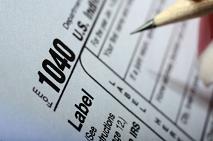 The Mortgage Debt Relief Act of 2007 (Act) generally works to allow tax payers to exclude cancelled debt from income owed on their principal residence. Qualified principal residence indebtedness is any mortgage a person took out to buy, build or substantially improve the person’s main home. After the real estate bubble burst, many homeowners found themselves in a position which tax law prior to the enactment of the Act would have required them to include as income the forgiveness of this debt. For example, assume John purchased a residence for $400,000 of which $350,000 was borrowed and $50,000 was used as a down payment. John lost his job and could no longer afford the payments on the residence, which declined in value to $300,000. He was able to sell the residence for $290,000 on a short sale and the bank forgave the remaining $60,000. But for the Act, John would have to pay tax on the $60,000 the bank forgave. However, the Act only works to relieve John from having to pay tax on this forgiveness of debt if it is for the purpose of buying, building or substantially improving the main home. In the above example, if John would have refinanced the residence for $400,000 and took $50,000 to pay off credit card debt, only $10,000 of the $60,000 would be excluded from income pursuant to the Act assuming no other exclusion applies.
The Mortgage Debt Relief Act of 2007 (Act) generally works to allow tax payers to exclude cancelled debt from income owed on their principal residence. Qualified principal residence indebtedness is any mortgage a person took out to buy, build or substantially improve the person’s main home. After the real estate bubble burst, many homeowners found themselves in a position which tax law prior to the enactment of the Act would have required them to include as income the forgiveness of this debt. For example, assume John purchased a residence for $400,000 of which $350,000 was borrowed and $50,000 was used as a down payment. John lost his job and could no longer afford the payments on the residence, which declined in value to $300,000. He was able to sell the residence for $290,000 on a short sale and the bank forgave the remaining $60,000. But for the Act, John would have to pay tax on the $60,000 the bank forgave. However, the Act only works to relieve John from having to pay tax on this forgiveness of debt if it is for the purpose of buying, building or substantially improving the main home. In the above example, if John would have refinanced the residence for $400,000 and took $50,000 to pay off credit card debt, only $10,000 of the $60,000 would be excluded from income pursuant to the Act assuming no other exclusion applies.

